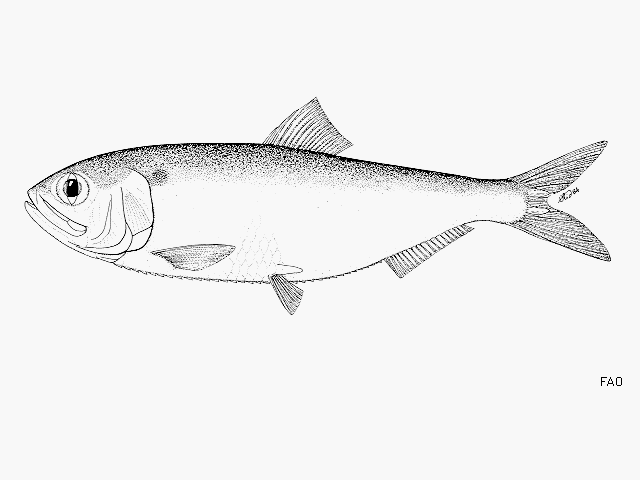| Alosidae (Shads and Sardines) |
| 25 cm SL (male/unsexed) |
|
pelagic; brackish |
| Former USSR and Asia: Caspian Sea. |
|
Dorsal spines (total): 3-3; Dorsal soft rays (total): 13-14; Anal spines: 3-3; Anal soft rays: 17-19. Body shape `shad-like'; upper and lower head profiles strongly rounded. Gill rakers rather long and thin, equal to or usually longer than gill filaments. Teeth well developed in both jaws. Resembles A. saposchnikowii which has a more pointed head, the upper and lower jaw profiles straight; A. caspia has more gill rakers and A. brashnikovi is more slender and `herring-like'. |
| Confined to semi-saline waters; non-anadromous, not entering fresh water. Spawns in the eastern part at the north end of Caspian Sea, from mid-May to end of June, mostly when temperatures are 18-20°C, salinities 8-10 ppt and at depths of around 3 m. The young move southward late in autumn, later than any other clupeids. |
|
Least Concern (LC); Date assessed: 17 July 2017 Ref. (130435)
|
| harmless |
Source and more info: www.fishbase.org. For personal, classroom, and other internal use only. Not for publication.
